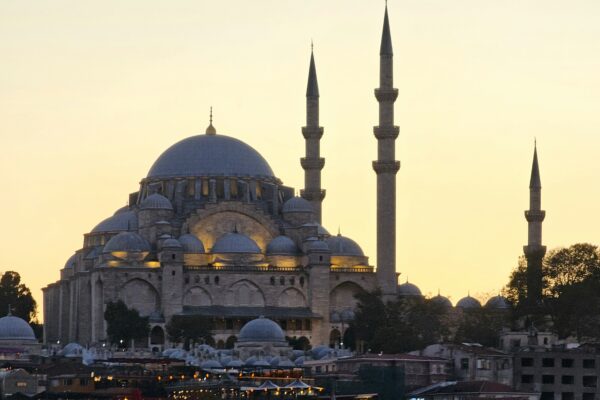Keeping in the current theme of xenophobic vitriol, Danish MP Alex Arendtsehen of the Anti-Immigration Danish People’s Party (DF), unabashedly leather whipped the following statement:
“What’s worse than a devout Muslim? A Muslim Convert.”
As a revert, I’ve been on the unwelcomed receiving end of raised eyebrows and misgiving reaction from non-Muslims, with “did you convert for a guy?” being the most sexist and jarring of all interrogations I have amassed thus far. “Why would you want to do this to yourself?” is another, as if I am some defector or masochist, determined on making their life difficult by seeking a path which the media paints conveniently unfavourable for women.
The answer to both is, “NO,” and well, because I wanted to.
Reverts are like a marble between two magnets, oscillating between balancing what is usually a tumultuous and strained relationship with non-Muslim friends and relatives, but also with their new found status in Islam. The vacuous demarcation this creates is a conveyor belt of confusion and pain, which ripens the environment for radicalisation that the Danish MP alludes to.
There is indeed this notion that Reverts are the most zealous, eagerly waiting to boast their new found faith. This unadulterated purity in which many reverts approach Islam translates to many as an incorrigible interpretation of the Quran. Thus, any deviancy is viewed as a legitimate reflection of the faith’s prescription, without understanding the plight of reverts in the community and the socio-behavioural variables that drive extremism amongst them.
Reverts are met with significant chauvinism. I have received numerous hugs, kisses and gulab jamuns upon conversion, however, I as well as many others, have experienced suspicion from both non-Muslims and born-Muslims alike, not to mention, lack of support from the wider community. Whilst a lot of non-Muslims view us with a treacherous suspicion, sadly, a lot of Muslims undertake the notion that converts know nothing and never will, mistakes ridiculed and pointed out. There is also a suspicion of reverts from European heritage, that their cultural influences and previous lack of Islam means that they have not stemmed from the same virtues as many born-Muslims have. Whilst it is a fact, that Christianity and secular European culture demands less of individuals, there is a precept that a revert has already been sullied.
The fact of the matter is that when a convert utters their Shahada, under the Shariah, their previous sins are stripped. Moreover, this doesn’t bear the nuances of the multitude of cultures outside the Islamic bloc – I personally, have come from a conservative Hispanic family, and my formative years have mirrored that of my many Muslim friends. Again, we have seen how creating this barrier between Muslims has poisoned the palette of the Ummah, we have seen it through intersectional racism in our communities as well as bloody sectarianism. This kind of attitude, which inadvertently pushes reverts away, leaves them vulnerable and open to extremism.
Many reverts tend not to fit into any of the traditional ethnic camps that tend to form in Western Islamic communities. There is an underlying pull that many reverts have to “Arabize” or “Pakistani-ize” to be Muslim, and this is usually brought on by the type of tight-knit communities that occur in the West, of whom are, naturally, suspect of anyone attempting to infiltrate their social circles. The danger with this is that many reverts automatically feel they do not belong to Islam because of the ethno-cultural differences between them and their host communities.
Moreover, it prevents us from celebrating the majestic differences amongst us all. Yes, reverts need to be incorporated into the wider Islamic community for integration (social connections such as marriage and friendships), however, a step needs to be taken back to let the revert take stock of how they will incorporate their own former cultural practices into their new Islamic framework. Not only does this allow reverts to not completely lose their identity, but it can also be beneficial to the Ummah – it was in the time of Al-Andalus, where multiple cultures came together and Islam truly flourished.
It is also important to note that some of the Muslims who perhaps pay a bit too much attention to the new ones are the overtly pharisaic; ready to pounce on new reverts. They ear-bash them, attempting to convert them to their version of Muslim orthodoxy, and reverts fall prey to the not-so-judicious of the Islamic faith. It is the cultivating void that all the aforementioned paves way to.
Reverts are indispensable to the Muslim community in the West, which is why the marginalisation of reverts is as disheartening as it is unjust. Reverts, especially white men who cannot entirely dispense their privilege, can be used as links between Muslim and non-Muslim community. The first individuals to embrace Islam provided clear defined channels between the Prophet (saws) and their respective sections of society. Take Khadeeja (as) and Abu-Bakr (ra), both of who helped spread Islam to the Meccan elite, or Imam Ali (as) who represented the youth in Islam. It was these intersectional links that were a key driving force in the spread of the religion. It was a time when Islam relied greatly on its social capital to expand, a forgotten yet vital message in our tradition.
Incorporating converts more into the epicentre of our rhetoric as a community can only be beneficial to dispelling myths to outsiders as well as battling extremism in our community. I pray that community leaders begin to create the environment to make this a reality, and to truly learn from our rich Islamic history in order to understand how essential it is to the fabric of our Ummah.





